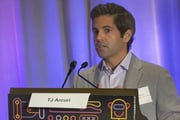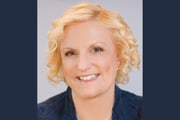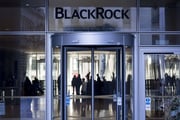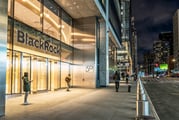
Office address: 50 Hudson Yards New York, NY 10001
Website: www.blackrock.com
Year established: 1988
Company type: investment company
Employees: 19,800+
Expertise: asset management, risk management, ETFs (iShares), fixed income, alternative investments, wealth management, retirement solutions, private equity, infrastructure, real estate, sustainable investing, financial technology
Parent company: N/A
Key people: Larry Fink (CEO), Rob Kapito (president), Joud Abdel Majeid (global head), Stephen Cohen (CPO), Ed Fishwick (CRO), Rob Goldstein (COO), Martin Small (CFO), Chris Meade (CLO)
Financing status: N/A
BlackRock is a global investment company from New York, offering asset management, advisory, and risk management services. The firm manages $11.5 trillion in assets as of October 2024 and operates in over 38 countries. With over 19,800 employees, the company serves clients in more than 100 countries, helping them achieve long-term financial well-being through innovative financial solutions.
BlackRock was founded in 1988 by Laurence Fink and seven partners, driven by a desire to manage assets with a focus on risk management and client interests. The company quickly grew, and in 1999, it launched Aladdin, its proprietary technology that transformed the risk management industry. During the 2008 financial crisis, the company was tapped by the Federal Reserve to assess Bear Stearns' assets, playing a crucial advisory role.
In 2009, it acquired Barclays Global Investors, becoming the world's largest asset manager and integrating both active and index strategies. In 2017, the company deepened its focus on investment stewardship, emphasizing the long-term value of purpose in profitability. By 2024, it partnered with Vestmark to boost model portfolios, further expanding its offerings for registered investment advisors.
BlackRock offers a wide range of investment products and services designed to meet the diverse needs of its clients. Below are the some of their key offerings:
BlackRock’s global team provides insights on markets, economies, and long-term strategies, helping clients navigate the complexities of investing. Whether it is a professional or a new investor, their services aim to support financial success while also empowering employees and giving back to communities.
BlackRock’s culture is built on a commitment to its clients, employees, and core principles. The company focuses on employee growth, offering benefits that support physical, emotional, and financial well-being. The firm provides various resources and benefits to keep employees engaged and balanced, some of which include:
The firm’s commitment to diversity, equity, and inclusion (DEI) is central to its success, fostering an environment where employees feel a sense of belonging. The company’s global platform thrives by incorporating diverse perspectives to deliver the best outcomes for clients. By embracing unique skills and experiences, they empower employees to collaborate effectively and contribute to a shared mission:
The company’s social impact focuses on making financial prosperity accessible to more people and communities. The BlackRock Foundation supports low- to moderate-income households by helping them save, invest, and build wealth. Initiatives include:
BlackRock’s approach to corporate sustainability focuses on long-term value for shareholders, employees, communities, and clients. The company is committed to transparency, providing stakeholders with meaningful sustainability-related information.
Laurence Fink is company’s chairman, CEO, and founder, also serving on the boards of NYU and the World Economic Forum. Before founding BlackRock in 1988, he was a managing director at The First Boston Corporation. Fink earned a BA in political science and an MBA in real estate from UCLA.
The company’s key leadership team includes notable figures who lead the firm’s operations across global markets:
To prepare for potential market volatility, BlackRock advises financial professionals to reduce risk and shift toward safer investment options. With uncertainty ahead, particularly due to macroeconomic concerns and the upcoming elections, the firm highlights the importance of defensive strategies like the BlackRock Flexible Income ETF (BINC). This strategic adjustment also reflects their broader move toward active management, signaling its belief in a more hands-on approach during turbulent times.
The company recently reached an $11.5 trillion milestone in assets under management by the third quarter of 2024. This growth was driven by strong client inflows, notably into ETFs, fixed income, and private assets. BlackRock is accelerating its push into private assets, following acquisitions like Global Infrastructure Partners, and continues to lead in both public and private markets.

‘I feel like the industry is way ahead of where Americans are in the discussion of retirement income,” says SageView advisor.

Family office advisor Carol Pepper shines a spotlight on how today's 'Rockefellers' are protecting and growing their family fortunes.

Deal makes Preqin chief wealthier than Larry Fink.

The ratings company is voicing concerns over the asset management giant's increased debt and leverage ratios.

Former Lehman Bros. trader eyes AI potential with VC bets.

Earlier whispers of a fourth-of-July greenlight now look premature as the SEC gives applicants a new deadline.

BlackRock's new ETF targets up to 100 percent downside protection over the course of a year while capping upside gains.

Asset manager will gain valuable insights into risks, opportunities.

The partnership aims to provide advisors with more opportunities to personalize client portfolios and enhance their after-tax returns.

SEC expected to give full approval to new crypto funds.

Fund attracted $2.7 billion in one day Monday.

The TAMP will help expand advisors’ access to BlackRock’s private markets, direct indexing, and fixed income SMAs.

Equity smart-beta ETFs have raked in nearly $48B so far this year as money managers look to spread their exposures or ride the biggest winners.

SEC chair hints at a possible timetable for new crypto funds.

Bigger firms mean more capital, new opportunities.
